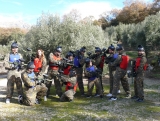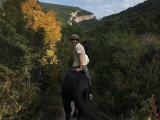Mountaineering, which refers to rock climbing, originated in the Alps, from which it derives its name. This is why today, all forms of mountaineering are governed by a single international body, the International Mountaineering and Climbing Federation (UIAA).

Today, thousands upon thousands of people engage in climbing in all its forms, across every corner of the globe.
In this article, we’ll delve deeper into climbing techniques.
The movement involved in climbing stems from the evolution of walking.
Focus is placed on weight distribution, with the central point located in the pelvic core, over the legs. To achieve proper technique, it’s crucial to learn to separate pelvic movement from foot movement, as this ensures the necessary balance.

Whether on rock (mountaineering), sport climbing (indoor/outdoor), or ice climbing, the body’s movements are based on the same techniques, though each activity requires specific considerations.
Pelvic retroversion shifts weight vertically over footholds to avoid exhausting the upper limbs. Isolating the pelvis means decoupling hip movement from torso movement.
The best way to learn this adventure sport is through a climbing course covering different techniques and gear usage. Explore various options here.
Anyone with enthusiasm can take up this sport, as it requires no prior physical conditioning. The essentials involve learning rope handling and having basic equipment (harness, rope, belay device, carabiners, 10 quickdraws, climbing shoes, and chalk for hand moisture). Beyond improving physical and mental skills, it’s a sport practised in nature, fostering respect and environmental awareness.

If you’re keen to explore different courses, remember that Yumping offers tailored options across Spain.
You’ll likely find a climbing centre to learn and practise nearby. Just take a look!











